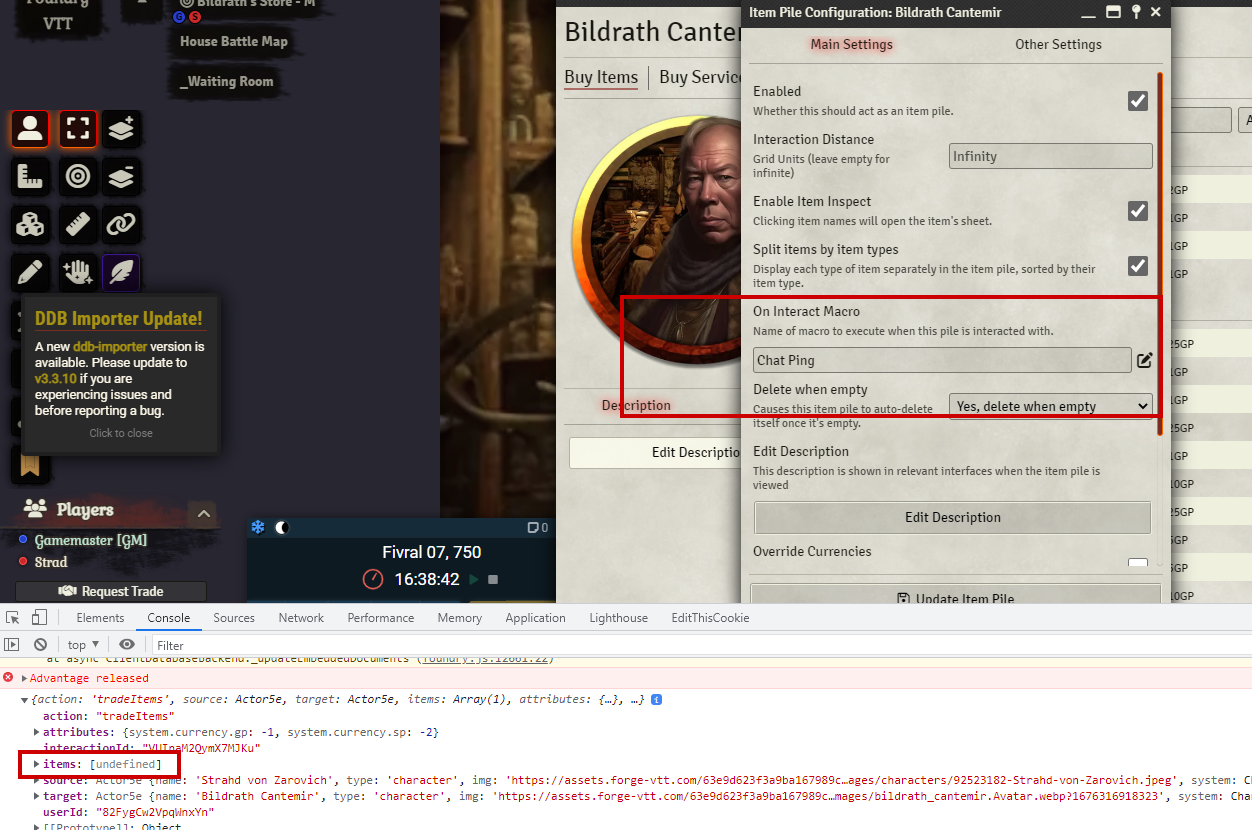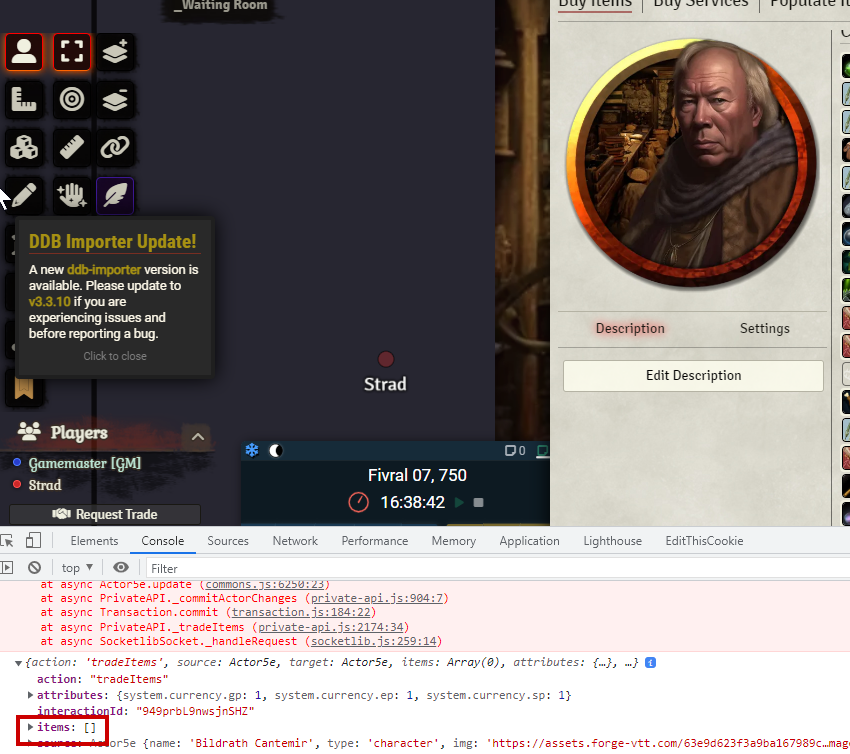Confirmed the location of the bug, it appears either the bug is that the object was double wrapped unintentionally, or it was just improperly referenced in a mapping function right before it is emitted to the macro function
In the image: When selling to a merchant, this code path attempts to map the items using the line:
if (macroData.items) {
macroData.items = macroData.items.map(item => targetActor.items.get(item._id));
}However, the object structure is item.item._id whereas it attempts to access item._id which results in the mapped array containing undefined values.





Have you tried to reset Item Piles' system settings? Yes
Describe the bug If I setup an On Interact macro to be executed from a particular Merchant, it is executed appropriately. However, the items that were either bought or sold do not appear in the context payload correctly. When buying, the item is just missing from the
itemsarray, when selling to a merchant, the items array is populated with anundefined.To Reproduce Steps to reproduce the behavior:
console.log(arguments);itemsinformation involved in the transactionExpected behavior I should be able to receive a list of items that were involved in the transaction so I can use them in my macro script.
Screenshots When Selling
When buying:
Setup:
Active modules: